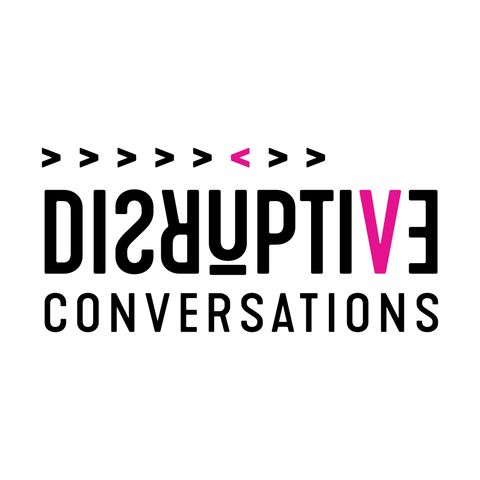S3: Ep. 88: Maintaining a stance of curiosity. A Disruptive Conversation with Peter De Jong.

Scarica e ascolta ovunque
Scarica i tuoi episodi preferiti e goditi l'ascolto, ovunque tu sia! Iscriviti o accedi ora per ascoltare offline.
Descrizione
In this conversation, Peter and I explore how solution-focused conversation has helped to shape his view of the world. This conversation is full of beautiful insights, stories, metaphors and quotable...
mostra di piùWhere do we have power and influence in conversations?
Peter reminded me of the power we all have in conversation. He uses an example of how someone can complain about the political views of a friend and say something like, “and I do, however, enjoy playing tennis with them.” We tend to focus on the complaint. What if instead, we focused on learning more about what they enjoy about playing tennis with their friend. We all have considerable power in our conversations. Often we fail to exercise that power.
A conversation is an interaction.
This may sound simple, but the idea that we can improve our everyday interactions seems powerful to me. I am curious about how we can leverage conversations to improve our daily interactions. So this notion that conversations are interactions in anything by trivial and can reframe our everyday experiences.
Breaking away from a reductionist world.
Like many social sciences, psychology has imported practices from the natural sciences and tried to apply it to human interactions. Part of what has made the science so successful is a reductionist view of the world. The idea that we can break things down into its component parts and understand how they work. Within the dominant discourse, science is often considered to be more credible than the social sciences. As a result, many social sciences have worked hard to prove that they are a science. This reductionist approach has worked well in engineering but does not always translate to human relational systems. Our social interactions are not reducible to cause and effect relationships in that same way that we can identify cause and effect in the natural sciences. I love that Peter so casually challenges years of dominant discourse to propose a stance of not knowing and not needing to know. He also offers a viewpoint where the coach, therapist or helper does not require a diagnosis to be helpful. They do not need to understand the other person’s problem to be helpful.
Assume that people have good reasons for their behavior.
I find it challenging to hold that stance that people have good reasons for their behavior. Peter offers us a very simple gift. What if your intervention was one of curiosity? What if, you instead said something like, “John I am sure you had good reasons for your behavior, can you tell me some of those good reasons?” Now imagine a parent whose instinct is to yell at a child. What if instead, they asked, “can you tell me some of those good reasons for your behavior?” It is such an elegant way to generate a productive conversation.
Get whomever you are trying to help to refocus their attention.
Peter tells a beautiful story about some clients he worked with who got into a food fight. His intervention was to ask them to do something different. In this case, the wife decided to throw food at her husband, and it resulted in a massive food fight. It disrupted the previously unhealthy pattern of them getting into fights and instead allowed them bond over cleaning up the mess. What stands out here is that Peter could have never thought of this as an approach to addressing the issue yet the simple prompt – do something different – produced a novel approach to addressing their conflict. Instead of yelling as she usually did, the wife threw food at her husband. This novel action made all the difference in the world. The notion of getting your conversation partner to focus on something different is so powerful and frees the client to discover their own solutions.
Get out of the client’s way.
In western culture, we tend to focus our work around the practitioner. Peter proposes what I think is a radical idea. What if we accepted the notion that clients can make progress without the help of the practitioner? Instead, the job of the practitioner is to help the client discover or uncover solutions by asking questions. The task at hand is to guide the client towards finding and making progress. Even more insightful, is that client can often make progress without know why or how they made progress.
In this episode, Peter also references two quotes that I find to be extremely powerful.
Ludwik Fleck- “he is a poor observer indeed who does not notice that a stimulating conversation between two persons soon creates a condition, in which, each utters thoughts he would not have been able to produce by himself or in different company.”
John Weakland – “Influence is inherent in all human interaction. We are bound to influence our clients and they are bound to influence us. The only choice is between doing so without reflection or even with attempted denial and doing so deliberately and responsibly.”
Resources cited in the episode:
http://www.microanalysis.ca/
You can email Peter at pdejongsft@gmail.com
Informazioni
| Autore | Keita Demming |
| Organizzazione | Keita Demming |
| Sito | - |
| Tag |
Copyright 2024 - Spreaker Inc. an iHeartMedia Company

Commenti